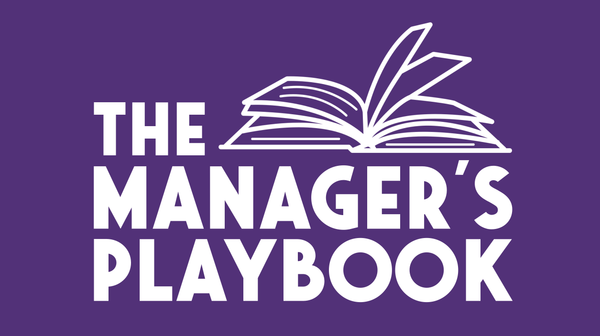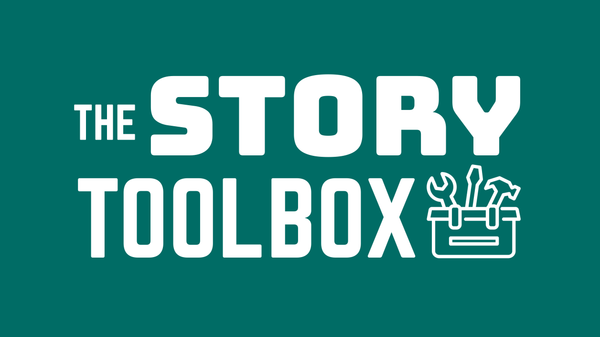Beyond The Spotlight: Michelle Barker

Welcome everyone to this new recurring blog post series: Beyond The Spotlight. In it, I’ll be interviewing conference speakers about their talk process, preparation and delivery, showing what happens behind the scenes of great conference talks.
In today’s first Beyond The Spotlight, I’m chatting to Michelle Barker. You may know know Michelle from her blog CSS { In Real Life }, where she writes about new CSS features, tricks, tips and general front end topics. She is also a Senior Front End Developer at Ada Mode, where she builds interactive data visualisations for green technology.
Michelle speaks about CSS and web sustainability at web conferences around the world, including Smashing Conference, Beyond Tellerrand and CSS Day.
Hi Michelle! Thanks for chatting to me today. I'm excited to hear all about your talk process!
What motivated you to give talks?
Being excited about a particular topic and wanting to share it with people! I used to organise web conferences before I became a developer, and I loved seeing how passionate people were about their subject, and how much they inspired the attendees. I never thought of myself as someone who would get up on stage and talk to people, but when I started learning about CSS layout I found there were so many things I wanted to share.
My first web development talk was about Miriam Suzanne’s Susy grid system, as it solved so many problems for me struggling with layout before we had all the cool stuff that we have now, like flexbox and Grid. I gave that talk as a designer to a roomful of developers, which goes to prove that you don’t have to be an expert with years of experience to deliver a talk. I generally only give a talk if I’m really excited about that subject.
That’s great! It’s also through one of those web conferences that you were organising that we first met! How did organising those conferences effect/prepare you for your own talks?
Through watching so many talks at those conferences, I learnt what makes a “good” talk and how to keep an audience engaged. Of course, it’s a very different thing getting up there and trying it yourself, but I like to think some of the lessons I learnt then inform my presentation style now. I also learnt a lot about the things that can go wrong — usually with tech — and how the flow of the talk can be impacted by things like switching between screens for live-coding demos. It took me years to feel brave enough to attempt live-coding, and if I decide to do it I make sure I practise it a lot before the talk to make it as smooth as possible.
What do you enjoy most about giving talks?
For me, the most enjoyable part is chatting with people after the talk, making friends and connections. Speaking at conferences has meant I’ve been able to travel to some cool places and meet people from all over the world. I’m quite an introverted person, and being a speaker means that you don’t have to worry about going up to someone and starting a conversation, as they will come up and start a conversation with you! There’s also a big release of adrenaline from doing something you never thought you could do. It’s quite addictive!
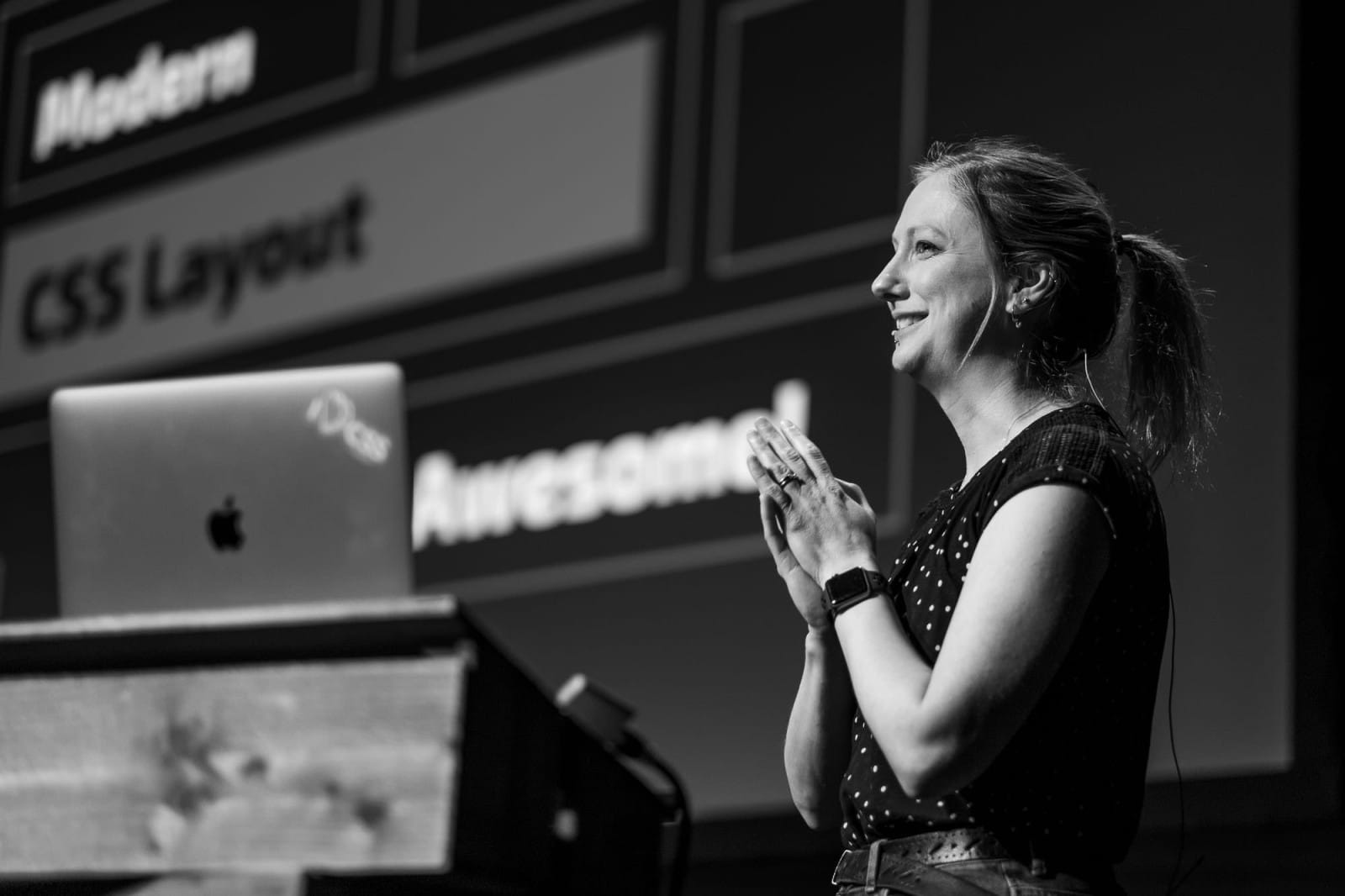
I’d love to know more about your talk creation process. Let’s start at the beginning: how do you come up with your talk ideas?
Usually I have something in my head that’s been interesting me for a while. The majority of my talks have been on CSS layout, I suppose I’ve made it my specialism. More recently I’ve been talking about web sustainability, which is something I’m passionate about. I get a lot of ideas from writing blog posts, as that leads me into further reading and research. Quite often it’s possible to adapt a blog post (or combine several blog posts) into a talk.
Once you have your idea, what’s next for you? What does your talk creation process look like?
I start by writing a rough outline in bullet points of the things I want to cover. This helps me find the rhythm of the talk, and work out which areas to focus on and what needs more research. I don’t have a particular favourite tool for that, it’s sometimes Notion, or a Google doc, or IA Writer. That process usually leads me to some more ideas, so I often end up in Codepen creating demos to try out different techniques (at least for a CSS talk). Once I have an outline I’m happy with, I jump into Keynote to start working on the slides.
What’s your approach to putting slides together?
The first thing is to choose a font, because I still haven’t worked out if you can change your font on all slides at once in Keynote! (If anyone knows, let me know!) Then I begin by pretty much transcribing the rough outline into slide form, adding the bullet points as speaker notes, often with blank slides or placeholder text to show where demos will go. Then it’s a process of refinement, fleshing out the slides with text, images and code samples, and adding more comprehensive speaker notes. The demos usually go in last, as I’m often changing them right up until the last minute.
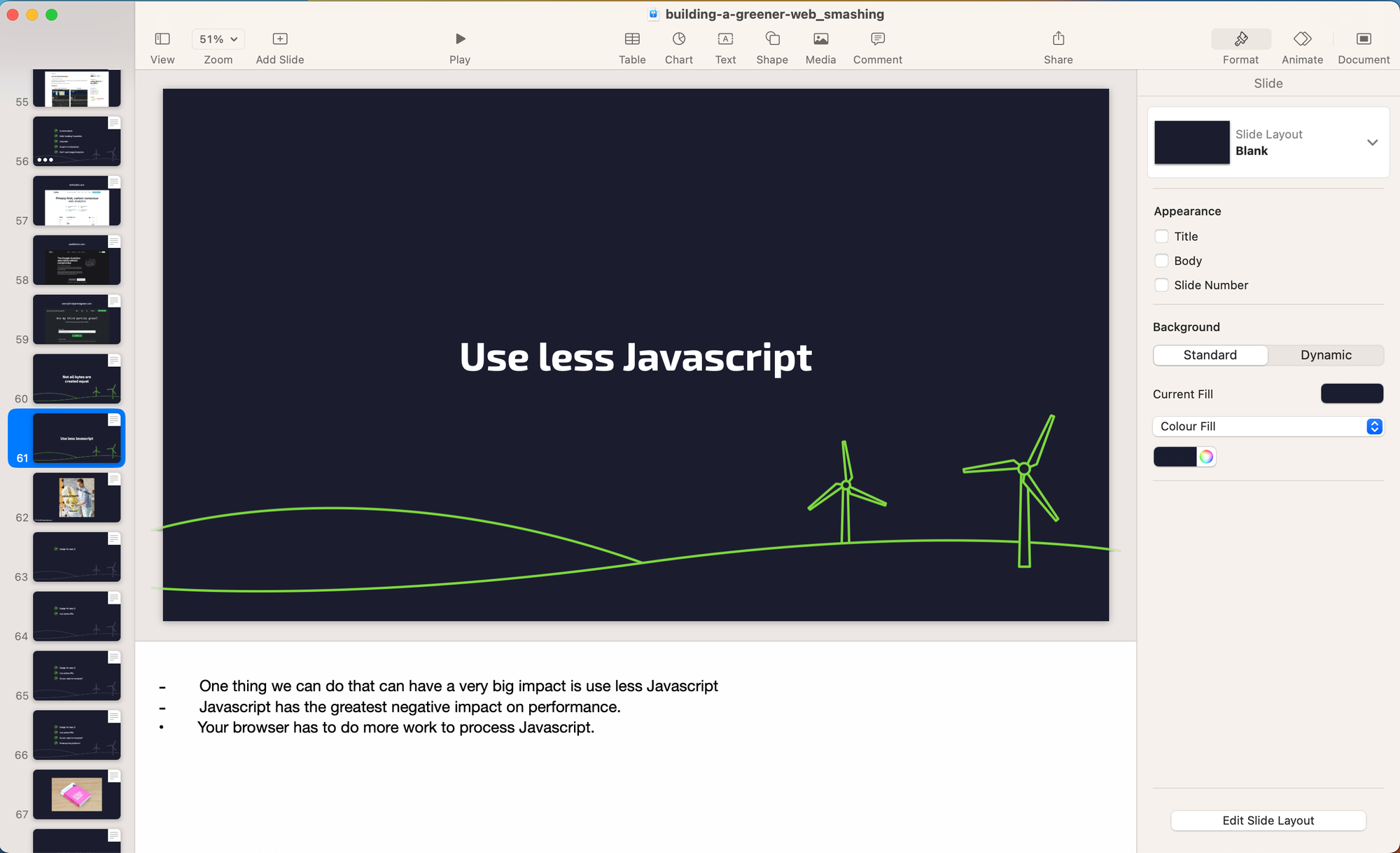
Let’s talk about the timeline of your talks. How long does it generally take to put a talk together?
A really long time! I once tried to track how long it took me to put together a talk. I think it was around 50 hours before I gave up keeping track. I’m sure that probably included some practice time too though. I’m so envious of people who look like they can just turn up on stage and deliver a killer talk at the drop of a hat.
Do you practice your talks? Walk me through that process.
I usually practise at my standing desk with my two monitors, to try and make it as similar as possible to talking on stage. I try to pretend I’m looking out towards an audience so I don’t stare at my screen too much. After the first two or three rehearsals I always make adjustments, as reading a talk out loud is always different to how I imagine it in my head. I practise a lot. For brand new talks I probably get close to twenty run-throughs. I don’t think that’s always a good thing, as I’m sick of the sound of my own voice by the end of it, I always end up wanting to change everything.
I don’t usually do any run-throughs in front of other people, although sometimes when I’m creating a new talk for a conference I’ll try to give the first version at a meetup first, to help me hone the talk.
How do you prepare on the day? Do you have any habits or rituals you do?
I always get up early and do a run-through on the morning of the talk. I make sure I get a proper tech check at the venue, especially if I’m doing any in-browser demos, as I’ve had my share of technical problems on stage.
How do you deliver your talk? Do you memorize, or do you rely on notes? Do you move around on stage, etc?
I probably rely a little too much on notes, but I try not to look like I’m reading them. A speaker once told me that they transcribe their entire talk into speaker notes, word-for-word. I tried that and it didn’t feel natural, it was too tempting to read it. Mine are mainly bullet points. I usually stick next to my laptop as I’m often showing live coding demos, but I try not to hide behind it. I wish I felt confident enough to deliver a talk without any notes, as I think that way of speaking is really impressive.
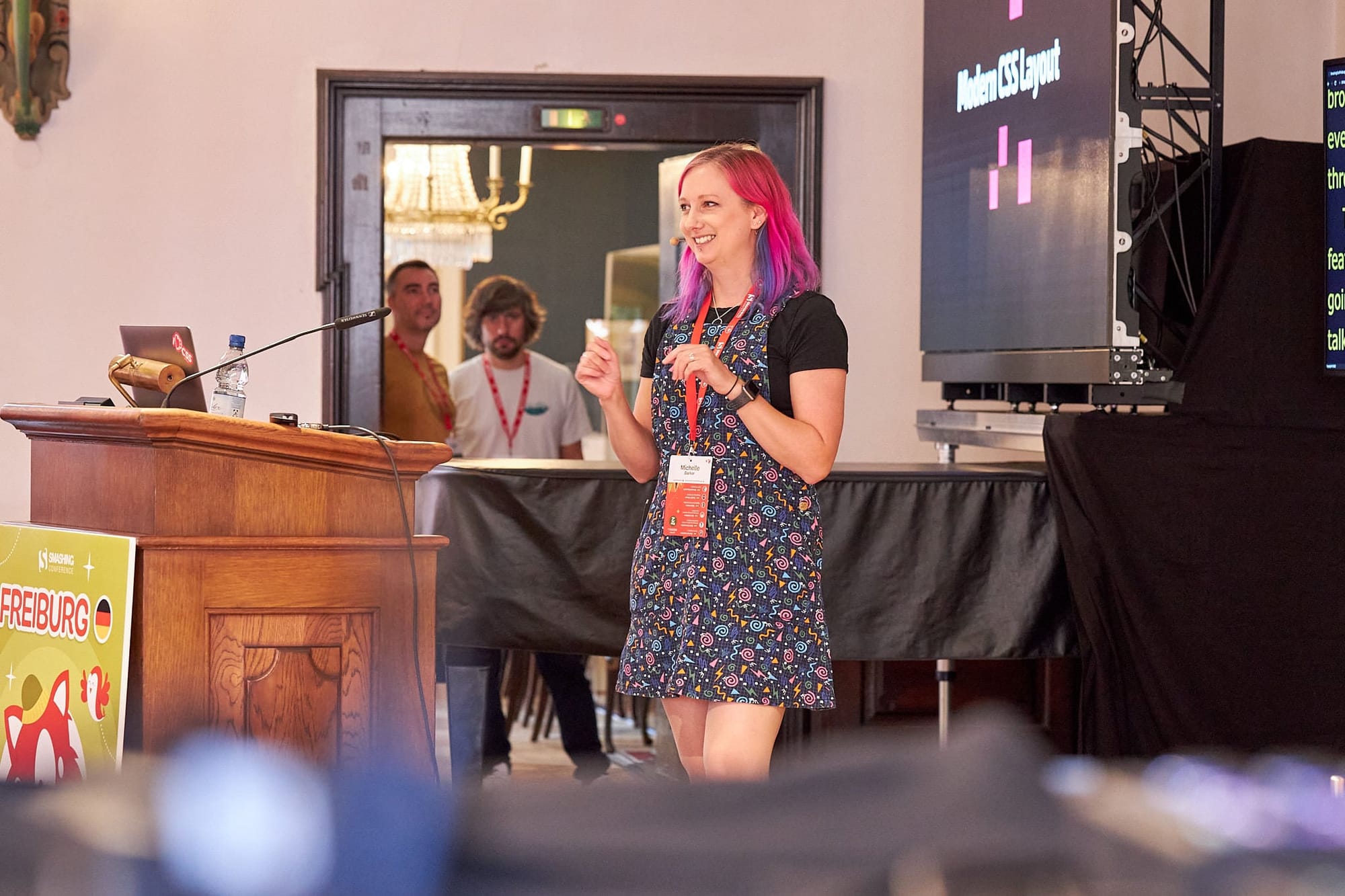
How do you deal with your nerves?
I don’t really have a tried and tested way. I don’t get as nervous as I used to, but I do get incredibly nervous when I’m speaking in front of an audience full of people I really admire. My best coping mechanism is just to over-prepare. Drink plenty of water, just the right amount of caffeine, make sure my slides are backed up and that I’ve done a tech check.
What’s the most awkward or unexpected thing that has happened while giving a talk?
I’ve encountered a few cases of tech going awry. During one talk the projector started glitching and then the screen went completely blank. It’s virtually impossible to talk about CSS layout without some sort of visuals, so I had to wait at the side of the stage for 20 minutes while someone tried to fix the problem.
What’s the best speaking advice you've ever gotten?
Remember that the audience is on your side. They want you to succeed.
What’s one thing you want people new to speaking to remember?
Speak about what you’re passionate about. If you’re excited about something, your audience will be too.
I love that! It's been great hearing all about your process! Thanks so much for your time, Michelle!
Liked this post? Share this post with a friend or sign up to my newsletter below to get future blog posts delivered straight to your inbox.
